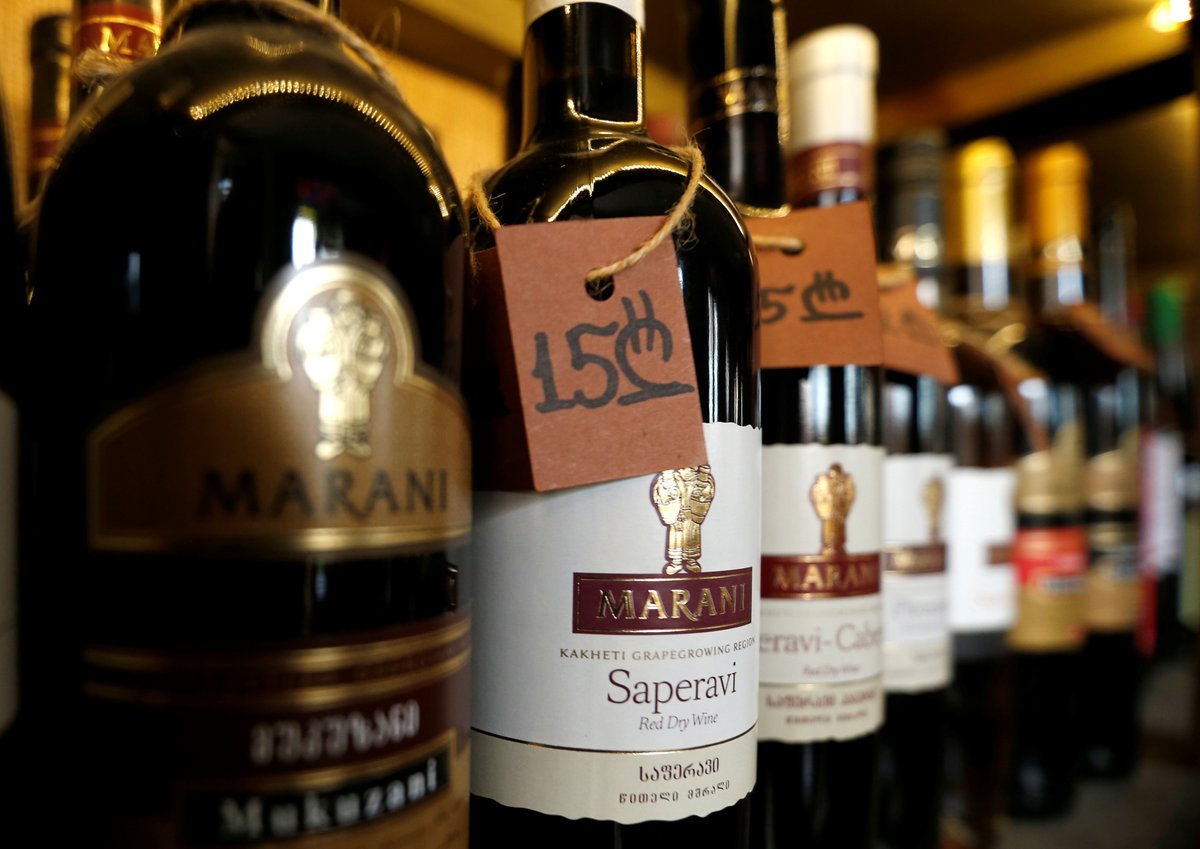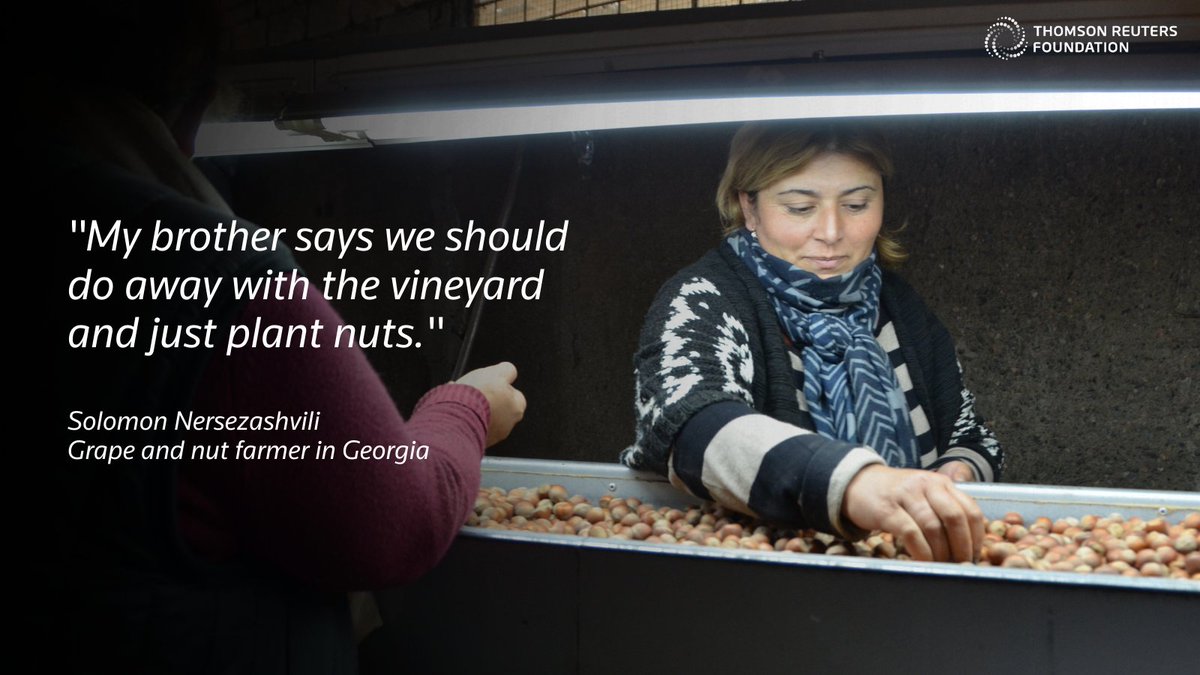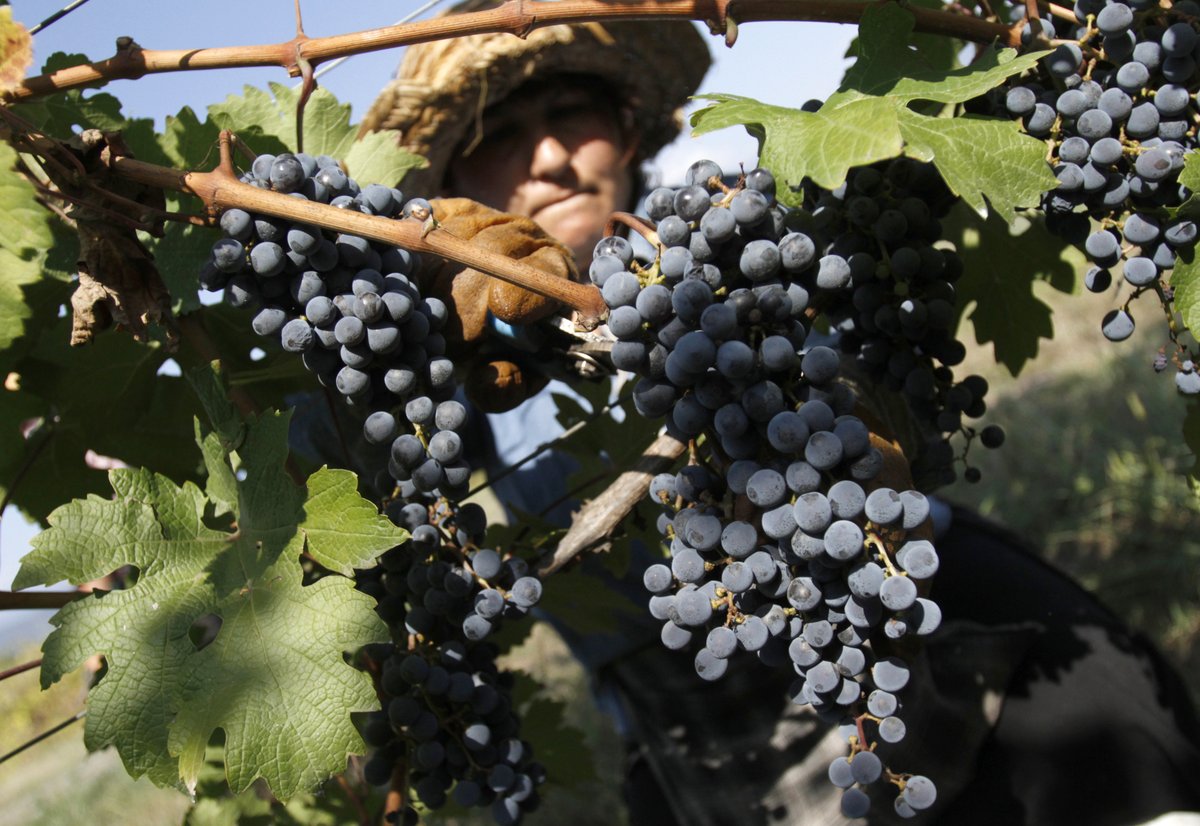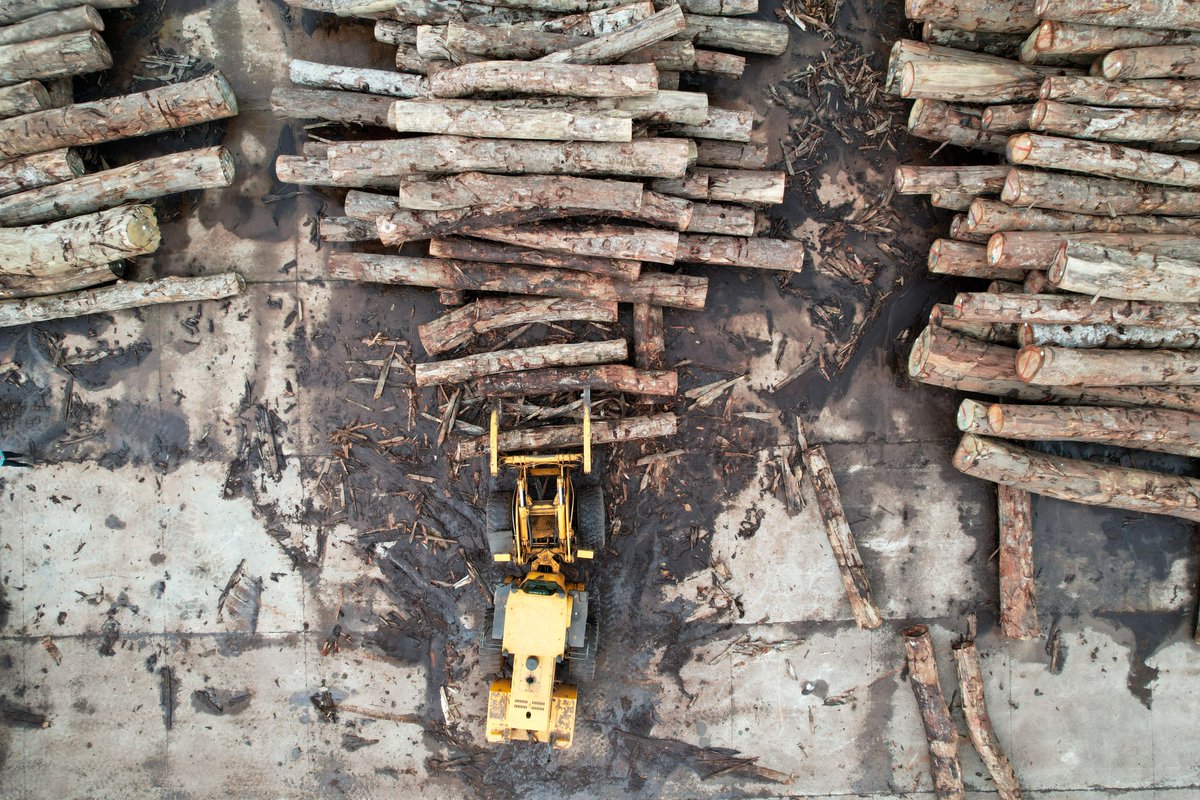
🚨 Wine lovers, we have some bad news…
🍷 Climate change could now be threatening your favourite drink.
In its ancient birthplace of Georgia, worsening storms are devastating vineyards. Here’s what that means for the future. 🧵


🍷 Climate change could now be threatening your favourite drink.
In its ancient birthplace of Georgia, worsening storms are devastating vineyards. Here’s what that means for the future. 🧵



🌾 Meet Solomon, whose family has been growing grapes for years in Georgia.
⛈️ In August, a huge hailstorm wiped out his harvest and cost $200,000 in lost revenue.
🔴 Storms in the region aren't new - but they're getting more intense, leaving farmers worried for their futures.
⛈️ In August, a huge hailstorm wiped out his harvest and cost $200,000 in lost revenue.
🔴 Storms in the region aren't new - but they're getting more intense, leaving farmers worried for their futures.

🌰 A decade ago, Solomon’s family also started planting nuts - a hardier and more profitable crop according to @RD_Georgia.
🍇 Now about 100 Kakheti grape producers have also made the switch to protect themselves against the effects of global warming.
news.trust.org/item/202110300…
🍇 Now about 100 Kakheti grape producers have also made the switch to protect themselves against the effects of global warming.
news.trust.org/item/202110300…

🇬🇪 But wine and grapes make up about 9% of Georgia's exports.
🚀 So the government is stepping in to help farmers - with hail-blasting rockets.
🌧️ These shoot silver iodide into the sky to stop ice forming in clouds, ensuring it falls as rain and saving grape crops.
🚀 So the government is stepping in to help farmers - with hail-blasting rockets.
🌧️ These shoot silver iodide into the sky to stop ice forming in clouds, ensuring it falls as rain and saving grape crops.

🇬🇪 The @ModGovGe’s system is run by contractor @StcDelta, which uses radar and weather forecasts to decide where and when to shoot rockets.
📉 They claim to have avoided roughly $28m in agricultural damage over the past 3 years.
⭕ But scientists say it has blind spots.
📉 They claim to have avoided roughly $28m in agricultural damage over the past 3 years.
⭕ But scientists say it has blind spots.

☁️ In late summer, grapes are ripe but hail clouds form at higher altitudes and rockets must travel further to make impact, says expert Khatuna Elbakidze.
🚩 Some farmers are also less enthusiastic.
"They shoot rockets and it still hails," said 79-year-old grower Isabel.

🚩 Some farmers are also less enthusiastic.
"They shoot rockets and it still hails," said 79-year-old grower Isabel.


💰 After the summer hailstorm, the government pledged to buy damaged grapes and pay about $950 per hectare to affected farmers.
🌱 Subsidies already support thousands of growers exposed to climate threats.
🚨 Yet critics say the costs are unsustainable.
🌱 Subsidies already support thousands of growers exposed to climate threats.
🚨 Yet critics say the costs are unsustainable.

💸@GfaGeorgia head Nino Zambakhidze says government insurance money should go to helping farmers adapt to climate change.
⛅ Winemaker John Wurdeman believes new weather stations or loans for anti-hail nets and hot water cannons are also better solutions. news.trust.org/item/202110300…
⛅ Winemaker John Wurdeman believes new weather stations or loans for anti-hail nets and hot water cannons are also better solutions. news.trust.org/item/202110300…
💰 At #COP26, developed countries are in talks to mobilise at least $100bn per year for developing countries to tackle the climate crisis.
🤔 Where do you think funds could go?
🤔 Where do you think funds could go?
🍷 Despite the challenges, Georgian farmers are not giving up yet.
🍇 Pressure from his brother hasn't convinced Solomon to replace the vines his father planted.
"We've invested too much money and work to just cut it all down," he said.👇 news.trust.org/item/202110300…
🍇 Pressure from his brother hasn't convinced Solomon to replace the vines his father planted.
"We've invested too much money and work to just cut it all down," he said.👇 news.trust.org/item/202110300…

• • •
Missing some Tweet in this thread? You can try to
force a refresh






















